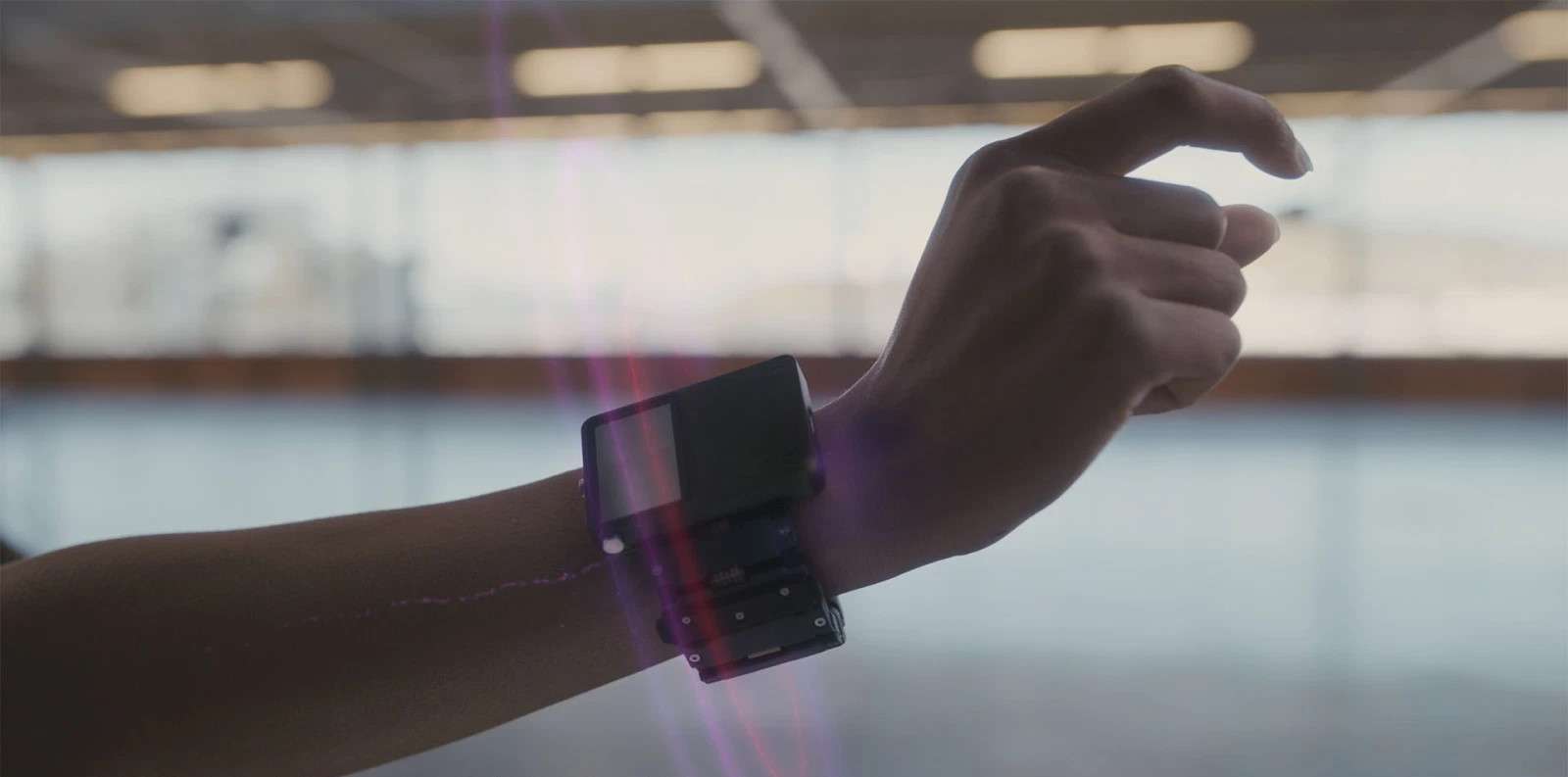This bracelet will allow you to control objects without touching them!

Facebook has just presented in detail its future bracelets to interact with virtual elements in augmented reality. By measuring nerve impulses, they will be able to detect finger movements without using a camera or gloves. Pressures and vibrations of the bracelets will make it possible to feel the objects handled.
With its Oculus Quest virtual reality headsets, FacebookFacebook has implemented an experimental hand tracking function, without controllers, only thanks to the integrated cameras. The technology is impressive, but far from perfect. His virtual and augmented reality laboratory is also working on another very different technology. In a new article, Facebook Reality Labs describes in detail neural bracelets that allow objects to be manipulated in virtual space, originally developed by the start-up CTRL-labs acquired by the social network in 2019.
Facebook has decided to place its future controllers on the wrists where they can be worn all day long, like a watch. The idea is that in the future, we could wear our augmented reality glasses permanently, and therefore require to always have a way to interact with them. To work, the firm has integrated sensorsensors into the bracelets in order to measure the nerve signals that pass through the wrists when we move the fingers. This is called electromyography (EMGEMG), and this technology is sensitive enough to detect a finger movement of a single millimeter.
Facebook explains how its bracelets work with some examples of use (video in English). © Facebook
A technology still in its infancy
Bracelets currently make it possible to perform “clicks” by pinching the thumb and a finger. However, the researchers are also working on more complex gestures, such as writing on a virtual keyboard. It would then be very simple to create a temporary office anywhere, simply by bringing up the keyboard and a virtual screen or document. By relying on artificial intelligence (AI) to analyze the way we use the keyboard, including bad habits and typing errors, the keyboard layout can be adapted to everyone and thus speed up typing.
Rather than a static interface, Facebook wants to make the use of augmented reality more fluid thanks to artificial intelligence. The virtual reality glasses will understand your current activity, and will allow you to interact with real objects, such as turning on or adjusting a connected lamp by pointing at it with your finger. In addition, the interface will adapt to your habits, and may, for example, offer to start playing your music when you are doing sports in order to avoid looking for the function in the menus.
The researchers perform a demonstration of the current state of writing with a virtual keyboard, which still requires an automatic corrector. © Facebook
Haptic feedback on the wrist to feel objects
Another important point for interacting with virtual objects is haptic feedback, in other words a feeling of touch. The bracelets are based on the phenomenon of sensory substitution, which makes it possible to interpret the sensations on the wrists as being related to the virtual objects that we manipulate. Facebook is currently exploring two different technologies. The first, called Bellowband, uses pneumatic and pneumatic elements. The second, Tasbi, integrates vibrotactile sensors. Both are capable of creating complex series of vibrationsvibrations and pressuresexpressions. This allows you to feel different texturestextures, or for example feel the tension of a bandaged bow in the form of pressure around the wrist.
Facebook did not give a possible release date, but simply indicated that it would be in the much shorter term than a previous publication on its ten-year vision. It’s hard to imagine that the bracelets could be ready in time for the release of Facebook’s connected glasses announced for the end of the year. However, the firm is currently working on its own augmented reality glasses, as well as its Oculus Quest 3 virtual reality headset, which could be an opportunity to test a first version of the bracelets.








